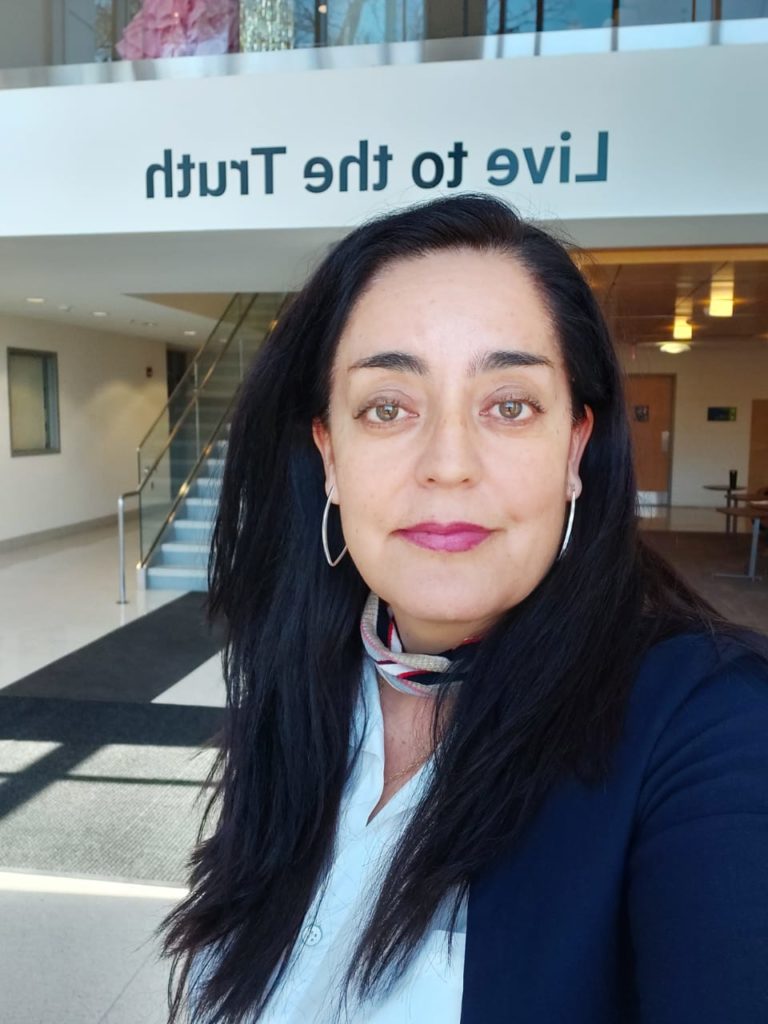Professor Gloria Tapia, who currently works at the Instituto Agrícola Pascual Baburizza, in the city of Los Andes, Chile, was part of the first experience of the ChileMass Teachers program, with the support of Luksic Scholars.
ChileMass Teachers is an initiative through which teachers working in public education in Chile have the chance to take English courses and internships in public schools in Massachusetts, with the goal of observing how the classes are conducted in schools in Framingham, along with actively participating as students of the “English Language Studies” program at Framingham State University.
ChileMass is a non-profit organization that seeks to maximize social impact and the transfer of knowledge between Chile and Massachussets.
Gloria Tapia, having returned to Chile after her experience in the United States, shares the following about her experience:
“At Middle Walsh School I did class observation twice a week for two hours each day. My personal observation consisted in “observing” the methodology applied by the teacher in a certain subject. For this purpose, I took notes on the pedagogical aspects that were significant and/or “profound” in the teaching-learning process of the students, such as the clear and visible presentation of the learning objective(s), the three phases of a class (start, development and closing), how the use of technology positively impacts, or vice versa, the educational process, the role of the teacher who focuses its class on students and not on itself, student projects, the teacher-student relationship, the coordination of the directors with the teachers and the curricular proposal of the school.
During the last three weeks at the school I gave Chilean history and geography classes to the students.
As a student in the university’s ESL program, I underwent a written and oral exam to assess my level of English to decide which course was for me. I participated in the advanced course in which I had classes every day from 8:30 am to 1:30 pm. Its aim was to improve English through public speaking, grammar, vocabulary, writing techniques and how to write an essay, and phonetics. In addition, we had to participate in tutorial classes once a week. The classes were made up of a maximum of 10 students from different nationalities, such as Brazilians, Salvadorans, Japanese, Chinese, Taiwanese, and Italians.
I lived in the university’s international building, which facilitated me with access not only to classes, but also to all cultural events held at and near the university. Having lived in that building gave me the opportunity to share with students from different cultures and nationalities, and there was a healthy coexistence of respect and true interest on knowing other ways of life.

I also participated as an observer-doer teacher at Middle Walsh School, and I had the possibility to become a student again, thing that filled me with energy and sharpened my senses in how all students should be taught respecting their personal learning rhythm, their strengths, weaknesses and emotions, aspects that together are relevant when learning.
As a student, I enjoyed each class with a participatory attitude in each of them. It was an instance to generate friendship bonds with my colleagues. And the fact of being an English teacher increased the demand for me, so I really prepared myself so as to give credit to the University of Chile, where I studied, and the IAPB school as well.
This experience enriched me in my methodological approaches, which was the primary objective, and will allow me to put them into practice at school. Personally, there was also a significant personal growth, since sometimes it is necessary to make a stop in the daily routine… And I did it in the state of Massachusetts! One of the teachers in the United States, Karen, even gave me the opportunity to teach my classmates Phonetics and Grammar, and that made me immensely happy!
My experience as a teacher/student was highly significant and I recommend living it, mainly because it is imperative to improve our educational practices having in mind the 21st century education, for it is characterized for being for a generation highly gifted in technology and we, as guides and teachers, must know how to get directly involved with it in order to achieve all the advantages that it can generate for all of us.”
